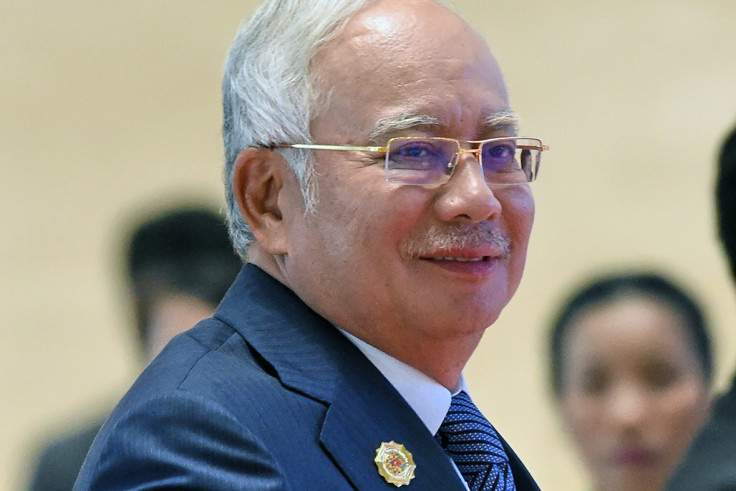Malaysia PM Najib Razak expresses support for strict Islamic laws to empower Sharia courts
Najib Razak said his policy speech at this year's party meeting would focus on the interests of Malays and Islam.

Malaysian Prime Minister Najib Razak, who is facing a backlash over his alleged involvement in a multi-billion dollar scandal, has expressed his support for strict Islamic laws in the country in a bid to woo Malay Muslims.
Malaysians are reported to be frustrated over corruption and the country's economy ahead of next year's election. Najib has fended off calls to quit over the last 18 months over the 1Malaysia Development Berhad (1MDB) scandal that drew widespread anger of Malaysians, including members of the ruling United Malay National Organisation (UMNO).
Razak called on ethnic Malay Muslims to extend their support to a plan by the rival pan-Malaysian Islamic Party and push for the adoption of an Islamic penal code, called hudud. It is believed to be an Islamic concept that sets out punishment under Sharia law and includes amputations and public stoning.
"We want to develop Islam," Najib was quoted as saying by Reuters on Tuesday (29 November). "Non-Muslims must understand that this is not about hudud but about empowering the Sharia courts."
His comments came ahead of the annual party meeting, which he said would focus on the interests of Malays and their Islamic religion.
"This is my speech as UMNO president, so my main audience are UMNO members and the Malays and bumiputera [Malaysian term to describe Malay race, which mean roughly 'son of the land']," he said. He is thought to have referred to Malays and not members of the ethnic Chinese and Indian minorities.
However, he clarified that "it doesn't mean we don't care at all about the others, but this is an UMNO assembly".
In May, when Najib's government fast-tracked the tabling of a bill to strengthen the powers and jurisdiction of the Sharia courts, it sparked an uproar among non-Muslim Malaysians. If parliament passes the bill, it is feared it may lead to the imposition of hudud laws.
Malaysia could see an early election next year because of the 1MDB scandal. Despite being named in the scandal, he is said to have remained in power by sacking critics in his government. He has been cleared by the local attorney general of any wrongdoing pertaining to the scandal.
On 19 November, Malaysia witnessed a massive anti-government protest calling on Najib to resign over alleged corruption.
Ethnic Malay Muslims have also criticised Razak for leaning towards China and for signing as many as 14 deals worth $34bn (£27.4bn) during his Beijing visit earlier in November. Malaysia's Malay-Muslim majority, who form the support base of the ruling UMNO, reportedly distrust the Chinese.
© Copyright IBTimes 2025. All rights reserved.





















